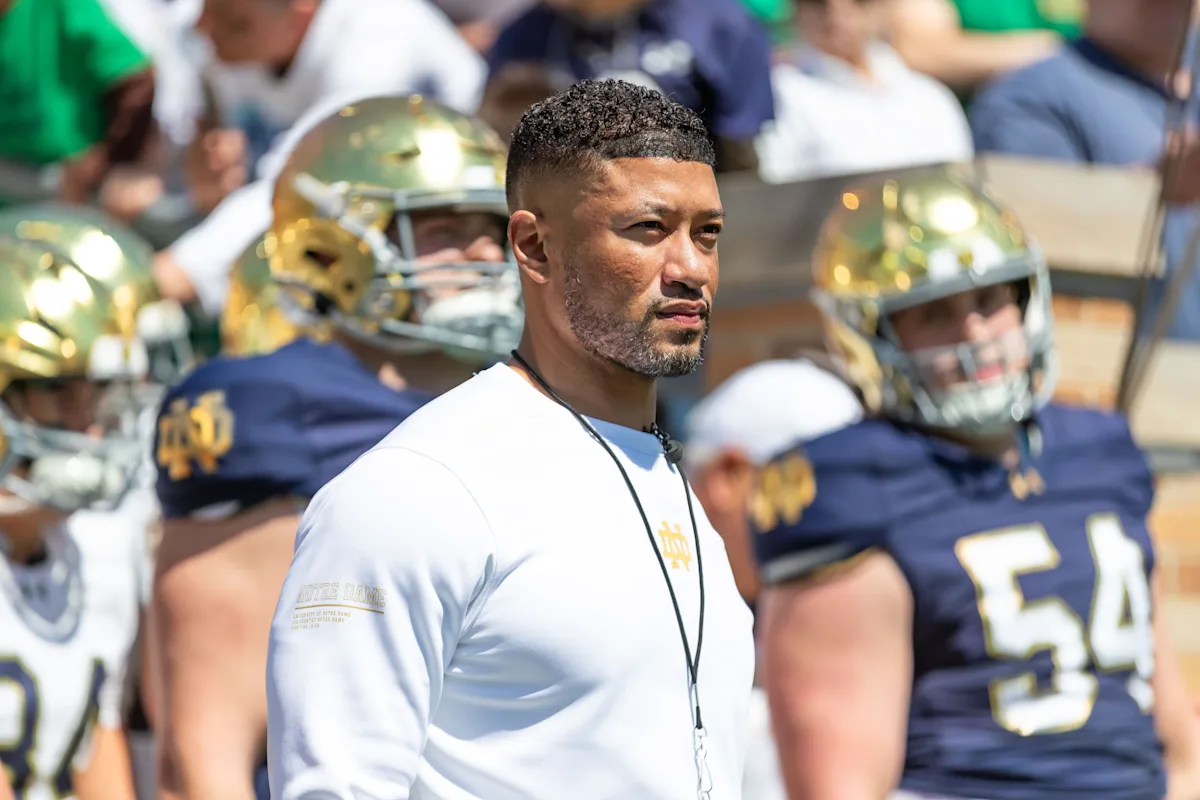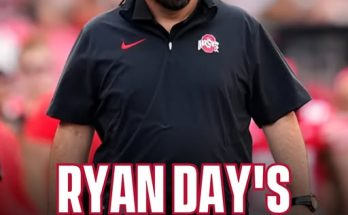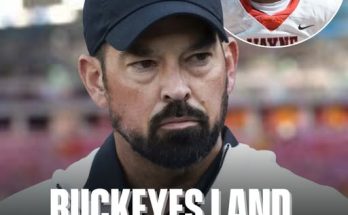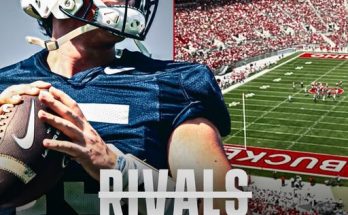In an era of NIL deals, transfer portal chaos, and increasing pressure on college football coaches to “win now,” Marcus Freeman continues to preach a message that seems almost countercultural in 2025: culture wins.
Entering his fourth full season as the head coach at Notre Dame, Freeman has never wavered from that belief. While programs across the country scramble for five-star mercenaries and flash-in-the-pan fame, Freeman’s Fighting Irish remain grounded in a foundational philosophy centered around trust, accountability, brotherhood, and long-term development. And while he has certainly embraced elements of the modern game—including navigating NIL and recruiting the portal when necessary—his unwavering conviction that culture beats talent when talent isn’t aligned with purpose continues to define his leadership.
This article explores how Freeman’s belief in culture as the core of Notre Dame football has shaped the program, influenced recruiting, weathered challenges, and positioned the Irish for long-term success—even amid a college football landscape that seems to evolve by the month.
The Origins of a Belief
Marcus Freeman’s coaching journey is one rooted in identity and discipline. A former Ohio State linebacker and longtime defensive assistant under respected coaches like Luke Fickell and Brian Kelly, Freeman developed a deep respect for the intangible aspects of football—leadership, team chemistry, discipline, and resilience.
When he was promoted to head coach of Notre Dame in 2021 following Kelly’s departure to LSU, Freeman stepped into one of the most prestigious and pressure-filled positions in all of college football. At just 35 years old, he was not only replacing a coach who left as the program’s all-time wins leader, but he was doing so at a moment when college football was undergoing seismic shifts in player empowerment and roster management.
From day one, Freeman made it clear: wins and losses would not solely define the program. Culture would.
“We’re going to do things the right way,” Freeman said in his introductory press conference. “We’re going to recruit great players, yes—but more importantly, we’re going to build a culture that sustains success. Culture wins.”
It wasn’t just a soundbite. It was a mission statement.
Building a Cultural Blueprint at Notre Dame
Freeman wasted no time putting that mission into action. Within his first year, he overhauled Notre Dame’s locker room environment, emphasized leadership councils, invited former players back to mentor current ones, and installed a system that empowered athletes to take ownership of the team’s ethos.
Instead of treating culture as a vague slogan, Freeman defined it through daily actions:
- Accountability: Players were expected to hold each other accountable for performance, preparation, and conduct—both on and off the field.
- Brotherhood: Unity and mutual respect weren’t optional; they were the glue of the program.
- Relentless Improvement: The Irish weren’t just expected to win games—they were expected to grow as athletes, students, and people.
The results became visible, even if they didn’t always show in the win-loss column. The Irish rebounded from early stumbles in Freeman’s first full season to finish 9–4 with a win over South Carolina in the Gator Bowl. His second season saw the team earn a 10–3 record, and perhaps more importantly, they became one of the most disciplined and resilient teams in the country.
Freeman’s culture was taking root.
“Culture Wins” in the NIL and Portal Era
The greatest test of Freeman’s belief system has been adapting to the two-headed beast that is NIL and the transfer portal. While many programs seem willing to sacrifice culture for immediate gain—enticing top recruits with lucrative NIL packages or flipping entire rosters through the portal—Freeman has taken a more nuanced approach.
Notre Dame has indeed embraced NIL, but not at the expense of team identity. Freeman has been intentional in crafting a structure where NIL enhances the program rather than hijacking it.
“Our message to recruits and transfers is simple,” Freeman said in early 2025. “If you’re looking for a quick payday, this probably isn’t the place for you. But if you want to be part of something special, if you want to grow as a man and leave here better than you came, then Notre Dame is the place.”
This message has resonated with many. While Notre Dame hasn’t always landed the “top-rated” class on paper, their recruiting classes under Freeman have been remarkably consistent—filled with high-character athletes who embrace the school’s academic rigor and cultural philosophy.
Transfers, too, have played a role, but only selectively. Freeman has avoided splashy headlines by focusing on players who fit Notre Dame’s culture, not just its depth chart.
That’s not to say he’s avoided high-profile additions. But every move has been made through the lens of whether that player will elevate—not fracture—the culture that he and his staff have spent years building.
Leadership Development and Internal Buy-In
One of the cornerstones of Freeman’s cultural focus has been leadership development. Each offseason, Notre Dame football conducts what it calls the “Culture Academy”—a series of team-building sessions, seminars, and exercises designed to strengthen leadership and ownership from within.
Upperclassmen are taught to mentor younger players, and leadership isn’t limited to captains. Every player is expected to lead in their own way—through their work ethic, attitude, preparation, and communication.
“Leadership isn’t about titles,” Freeman told his team last summer. “It’s about impact. It’s about consistency. You lead through how you live.”
This internal accountability has created one of the most unified locker rooms in the country. Notre Dame players frequently speak of a “player-led” culture. That’s by design. Freeman believes the strongest teams are the ones where players police themselves and uphold standards without needing to be told.
Navigating Setbacks Without Losing the Core
The 2024 season brought challenges that tested the resolve of Freeman and the program. Despite entering the year ranked in the top 10, Notre Dame suffered narrow losses to Ohio State and Clemson and missed the College Football Playoff. Critics questioned whether Freeman’s cultural emphasis was too “idealistic” for a modern sport dominated by high-stakes capitalism.
But inside the walls of the program, Freeman never flinched.
“Setbacks don’t change who we are,” he told the media after the Clemson loss. “We’re building something that’s meant to last. Culture isn’t about avoiding adversity—it’s about how you respond to it.”
His players echoed those sentiments. Team captains like Joe Alt and Xavier Watts credited Freeman’s consistent message as the reason the locker room stayed intact during the difficult stretches.
That unity translated into a strong finish and renewed momentum on the recruiting trail.
2025 and Beyond: Sustaining the Vision
Now entering the 2025 season, Notre Dame is once again poised to contend. With a strong recruiting class, emerging stars at quarterback and receiver, and a veteran defensive core, Freeman’s team has a mix of experience, hunger, and identity.
But the true story of this team isn’t just talent—it’s alignment. It’s the consistency in messaging, the buy-in from coaches and players alike, and the clarity of purpose that continues to drive every meeting, practice, and game.
Notre Dame has even begun to trademark the phrase “Culture Wins” as part of its athletic branding—proof that what Freeman started is no longer just a coaching mantra. It’s becoming a Notre Dame identity.
As athletic director Jack Swarbrick put it, “Marcus Freeman has given us more than a football coach—he’s given us a North Star.”
The Ripple Effect
Perhaps the most compelling testament to Freeman’s philosophy is the ripple effect it’s had across the landscape. Other coaches have begun to echo his language, and recruits are asking about culture more than ever before. At a time when so much of college football is defined by chaos and cash, Notre Dame under Marcus Freeman stands as a bastion of purpose-driven football.
Freeman has shown that “culture wins” isn’t just a nice idea—it’s a strategic advantage. And in 2025, with eyes set on a College Football Playoff berth, Notre Dame doesn’t just believe in that principle. They live it.
And as history has shown time and again—from the dynasties of Alabama to the brotherhood of the 2019 LSU Tigers—when talent meets culture, championships follow.



